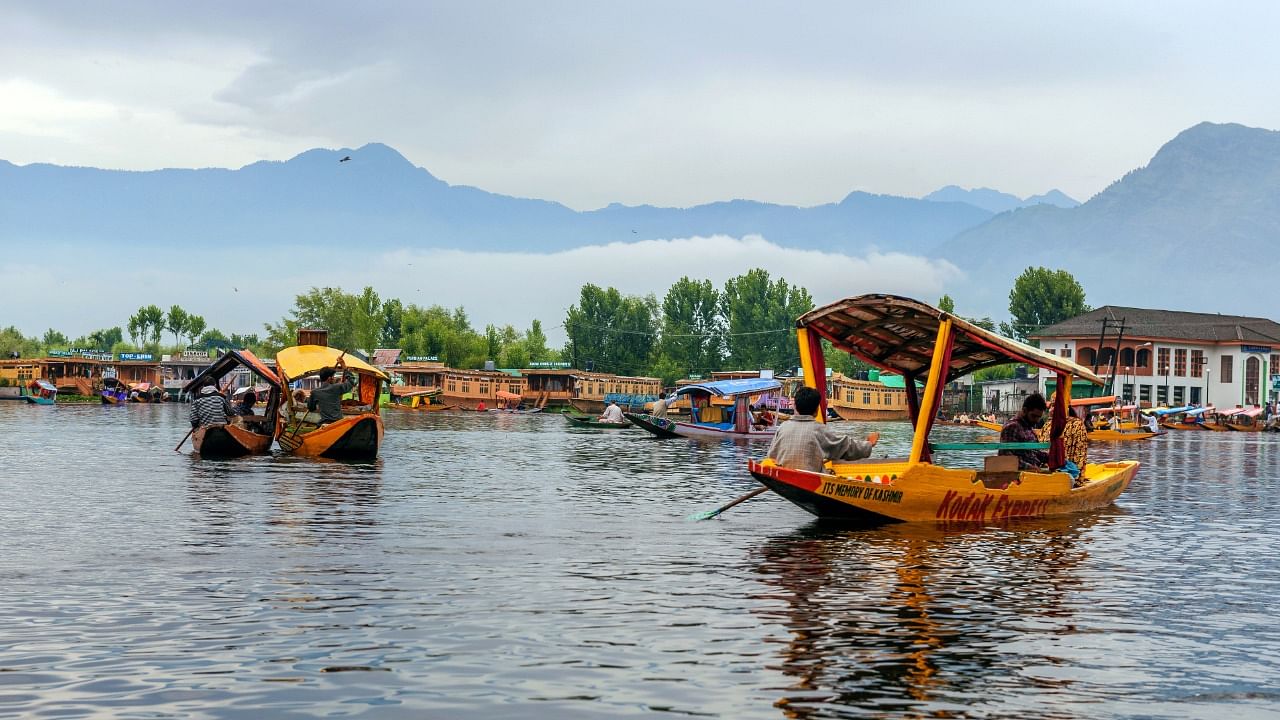
Shikara Boats on Lake Dal Srinagar.
Credit: Getty via iStock Photo
At a time when tourism activities in Kashmir are in limelight, the Union Territory administration has also shifted its focus to promote centuries old rich literature, art, culture, heritage and traditions of the Valley.
Kashmir’s geographical location partly explains its cultural history and it may be that its natural beauty and temperate climate are the reasons that Kashmiris have a strong tradition in the arts, literature, painting, drama and dance.
Last week, as part of J&K administration’s efforts to take literary activities from cities and towns to the hinterland, a maiden two-day "Veshow Literary festival" was organized in south Kashmir’s Kulgam district which not long ago was hub of new age militancy in the Valley.
The two-day event was held by Kulgam administration in collaboration with Indira Gandhi National Centre for the Arts during which multiple functions and literary sessions were held.
Local artists and writers who took part in the event said the literary fest provided them with a platform closer to their homes to showcase their work. The event had an impact in creating awareness among the public, especially the younger generation about Kashmir's lost glory in the field of literature and art.
The two day festival witnessed different sessions including Sessions on Sirsov (Spiritualism in Kashmir Literature), Tsrathaal, Magun (Talent hunt) Sadre, Young women Authors of Kashmiri, Kathi Manz Kath, Kashmiri Folk Literature, Mushaira, besides others.
During the Sirsov (Spiritualism in Kashmir Literature) session, authors deliberated on Buddhism, Shaivism, Reshi/Sufi Tradition, Tasawuf, Shaivism and on spiritualism in Kashmir.
Tabish Ajaz Khan, an artist who participated in the event said that it was great that they are getting a platform to showcase their work. “This is an encouragement for the youth of Kashmir,” he said.
Bharat Singh Manhas, an official of the Jammu and Kashmir Academy of Art Culture and Languages, said the festival was an attempt of taking the works of writers and artists of interior regions to other parts of the Union Territory.
Basharat Saleem, who has written a paper on “Literary Evolution in Kashmir: A Historical Overview” in Research Journal of English Language and Literature says Kashmir has a well established literary tradition of its own.
“It is also very well known that Kashmiri is not the only language that Kashmiri writers take recourse to while expressing their literary imagination. Kashmiris have and continue to produce literature in various languages like Sanskrit, Kashmiri, Persian, Urdu, Hindi and now English,” he said.
“The Sufi mystic influence is evident in the poetry of early Kashmiri poets like Lala Ded and Nund Rishi. In its essence, Kashmiriyat was characterized by an emphasis on the universal values of pluralism and tolerance,” Saleem added.